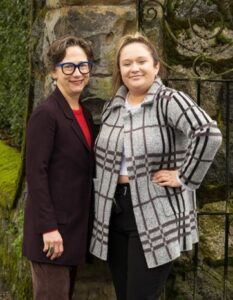Next Trusted Adult Presentation
When: TBA (Materials Are Available on Request)
Where: TBA
Who: People who want to make a difference in the lives of young people in our community.

 In the Trusted Adult program, learn to understand what is going on in the world of young people. Learn how to create a trusting relationship with them. Learn the strength-based approach to healthy development and how hope plays a role in youth success and wellbeing. As a trusted adult, you can help create a web of support for youth and have the ability to know when and how to access professional support.
In the Trusted Adult program, learn to understand what is going on in the world of young people. Learn how to create a trusting relationship with them. Learn the strength-based approach to healthy development and how hope plays a role in youth success and wellbeing. As a trusted adult, you can help create a web of support for youth and have the ability to know when and how to access professional support.
The Goal of Trusted Adult

NAMI SW WA has taught select volunteers to be Trusted Adult Trainers. These trainers will then train people in schools, faith communities, mentoring programs, sports programs, and how to be a trusted adult for youth. We want to set up a network throughout southwest Washington that is self-sufficient, culturally diverse, and accessible to all youth.
Being a Trusted Adult is a rewarding, uplifting experience. Whether you are a facilitator who teaches people how to be Trusted Adults, or become a Trusted Adult yourself, you can change youth’s lives for the better. We all know being young can be a struggle, with a worldwide pandemic added in, the issues can be come overwhelming. Be that Trusted Adult who supports the youth today for a more stable and promising future.
The 12-hour training prepares adults to understand their role as models of social and emotional health, anticipate the mental health needs of youth and understand how to engage with youth skillfully.
It uses the Calm and Connected Toolkit, which has four foundational ideas:
- By working in partnership with youth, adults create the calm connections youth need to thrive.
- A focus on wellness provides youth and adults a shared language for healthy living and everyday mental wellness.
- Grounded in science, the toolkit promotes mental health, life skills and a growth mindset.
- Hope is needed to keep youth engaged and committed to the journey of life, especially when they face unprecedented levels of stress and uncertainty.
Things you’ll learn in a Trusted Adult Training:
- Grow the social and emotional skills and mindset needed to become a trusted adult.
- Know how to engage with youth to grow their wellness and attend to mental health and life challenges as they arise.
- Recognize how your relationship contributes to youth mental health.
- Practice engagement skills and receive helpful insights and tips.
Training to become a trusted adult takes a total of 12 hours. This may be two 6-hour days, or three 4-hour days. Registration is required.
In 2022, the national percentage of youth experiencing an episode of depression has increased 1.24% to 15%. In comparison, Mental Health America found that in Washington state, a staggering 18.22% of youth ages 12 – 17 reported experiencing at least one major depression episode (MDE) in the last year. Compared to other states, Washington was rated #49 out of 51 (the 50 states and Washington DC) for major depression episodes.
Overall in 2022, the national percentage of youth living with substance use disorder is 4.08%. Out of the 51 states and Washington DC, Washington state was rated 41st with 4.84% of youth reporting living with a substance use disorder.
According to the CDC, suicide is the 2nd leading cause of death for youth ages 10 – 14, which accounts for 14% of all suicides in 2020. That’s 6,643 youth in 2020 who died by suicide. There was an estimated 217,447 emergency department visits due to self-harm or suicide attempt among girls and young women ages 10 – 24, which is twice the rate of ED visits of boys and young men.
 We are the co-creators of the Calm and Connected Toolkit. Our partnership started eight years ago, when we collaborated on a community-based intergenerational Social and Emotional Learning (SEL) curriculum for tweens and teens called Brave Space for Kids. Kathleen is a mental health educator, trauma-informed care trainer, and certified wellness coach. Kathleen has a B.S. in Psychology and an AA degree in Criminal and Social Justice. Lucianne Hackbert, Ph.D. is an SEL curriculum developer and consultant and a parent of two teens. Luci completed the Embodied Social Justice Certificate Program in 2021. Kathleen and Luci created the CCT to weave a web of support around youth during this current mental health crisis.
We are the co-creators of the Calm and Connected Toolkit. Our partnership started eight years ago, when we collaborated on a community-based intergenerational Social and Emotional Learning (SEL) curriculum for tweens and teens called Brave Space for Kids. Kathleen is a mental health educator, trauma-informed care trainer, and certified wellness coach. Kathleen has a B.S. in Psychology and an AA degree in Criminal and Social Justice. Lucianne Hackbert, Ph.D. is an SEL curriculum developer and consultant and a parent of two teens. Luci completed the Embodied Social Justice Certificate Program in 2021. Kathleen and Luci created the CCT to weave a web of support around youth during this current mental health crisis.
The creation of the Calm and Connected Toolkit was funded by the Lopez Island Family Resource Center (LIFRC) and we continue to appreciate the partnership with LIFRC. Tricia Cassels Photography was essential in helping with some beautiful photos for this website. We live and work on the unceeded territories of the Coastal Salish peoples and we acknowledge their sovereignty as well as our heartfelt desire that our work can in some way contribute to healing and justice.
